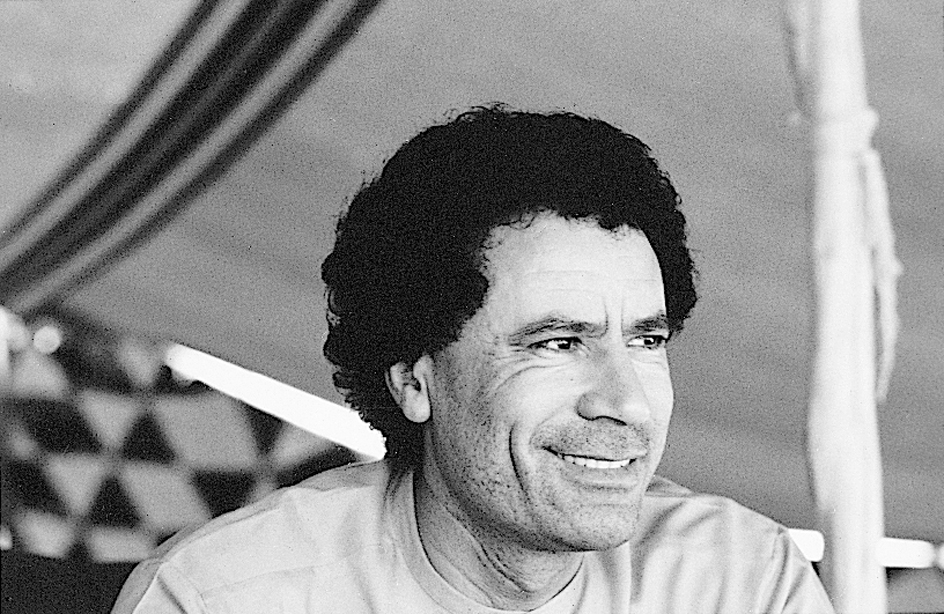Qadhāfī, Mu’ammar Muhammad al-, << guhd DAH fee, moo ahm MAHR moo HAM uhd ahl >> (1942-2011), led Libya’s government from 1969 to 2011. He came to power after he led a military overthrow of Libya’s monarchy. He held the rank of colonel and was commander in chief of the Libyan armed forces. Other spellings of his name include Gadhafi, Kaddafi, and Qaddafi.

In 2011, antigovernment protests led to an armed rebellion against Qadhāfī’s rule. Qadhāfī ordered the Libyan military to attack the rebels, killing thousands. The United Nations (UN) responded with a resolution calling for “all necessary measures” to protect Libyan civilians. Air strikes led by United States, French, and British warplanes then hit Libyan military positions. As fighting continued, the North Atlantic Treaty Organization (NATO) took over the military operations aimed at protecting civilians. In June, the International Criminal Court (ICC) issued an arrest warrant for Qadhāfī for crimes against humanity. The UN created the ICC to try individuals for crimes of concern to the international community. By August, rebel forces controlled most of the country, including Tripoli, Libya’s capital. Qadhāfī fled the city and went into hiding. The National Transitional Council (NTC), the political arm of the rebellion, took control of the government. On October 20, Qadhāfī was killed in his hometown of Surt (also spelled Sirte).
Qadhāfī was an outspoken, radical leader with a strong belief in Arab unity under Islam, the religion whose followers are called Muslims. He also strongly supported unifying the countries of Africa. On a number of occasions, he gave military and financial aid to revolutionaries and terrorists in many parts of the world. During the 1980’s and 1990’s, leaders of many countries, especially Western countries, denounced him for interfering in other nations’ affairs. In 1992 and 1993, the UN imposed sanctions on Libya for refusing to turn over Libyans suspected of placing bombs on two international civilian airplane flights. The UN suspended its sanctions in 1999 after Libya handed over two of the bomb suspects to UN officials. One suspect was later convicted. In 2003, the UN sanctions were fully lifted after Libya agreed to pay compensation to the families of the bombing victims. From February 2009 to January 2010, Qadhāfī served as chairman of the African Union, an organization that promotes cooperation among African nations. For more details, see Libya (History); African Union.
As Libya’s leader, Qadhāfī encouraged strict obedience to the laws of Islam. Oil income enabled Qadhāfī to build many schools, houses, and hospitals, and his government provided free social services for all citizens. However, a downturn in oil prices in the 1980’s and 1990’s and the UN sanctions significantly reduced Libya’s prosperity.
Qadhāfī was born in a desert tent near the town of Surt. His exact birth date is unknown. He attended the Libyan Military Academy in Benghāzī and the Royal Military Academy at Sandhurst, England.
